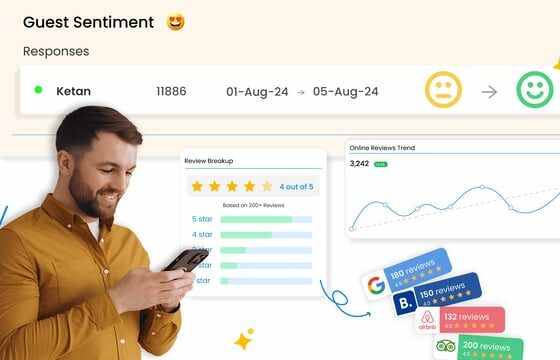
Hotel work demands speed, accuracy and strong people skills. During peak seasons or large events, the pressure to perform builds quickly. That reality can be both exciting and intimidating for new hires.
Many of these employees show up ready to learn but face a tough adjustment period. Juggling unfamiliar processes, managing guest expectations, and absorbing policies can leave them feeling lost. Without support, stress builds and high turnover follows.
Hotel leaders set the tone for whether new staff sink or swim in high-pressure environments. When training is intentional, communication is clear, and learning is baked into the culture, employees are more likely to stay and to improve with every shift.
Set Clear Expectations and Training from Day One
The first few days on the job are often chaotic. New hires are hit with names, procedures, and property rules, all while trying to make a good impression. It’s a lot to handle, and if it’s not managed well, it can push them over the edge far too early. There’s a direct link between poor onboarding practices and burnout. Over 40% of new industry employees quit within the first 90 days.
A step-by-step onboarding plan helps calm the chaos. Clear learning tracks, easy access to resources, and scheduled check-ins give employees a sense of direction. It also shows that their development matters, too, not just their output. Welcome gifts can also make them feel part of the team.
Letting new hires shadow seasoned coworkers, offering simple, task-based guides, and encouraging quick questions during shifts all go a long way. These small moves reduce guesswork and make each day feel a little more manageable. Feedback given early and casually can also ease nerves and help the new routine feel more natural.
Support New Staff During High-Pressure Moments
Before they’re fully up to speed, new employees often find themselves in the middle of unpredictable scenarios. A packed lobby, a late VIP, or a tech glitch can catch anyone off guard. This is especially the case when someone is still learning the ropes.
One of the most effective ways to prepare new hires for pressure is to simulate it in a controlled way. Pre-shift walkthroughs of what to expect during busy periods, or short “what-if” scenario drills, can help staff anticipate challenges before they arise. Employees who feel like they’ve already seen a situation are much more likely to act with confidence in real time.
Support makes all the difference here. A manager who’s present during busy shifts or a peer who steps in with advice can turn a potential meltdown into a teaching moment. Having someone to check in with helps reduce hesitation and builds confidence.
Decision tree diagrams and other visual tools can also be a lifeline. They give staff a clear path forward, especially when the pressure is on. With visual steps to follow, even a brand-new hire can take action without second-guessing. It’s a simple way to keep the flow of service steady when the unexpected happens.
Handle Mistakes With Constructive Feedback
Mistakes are part of any job, especially one with lots of moving parts like hotel operations. Whether it’s a misfiled booking or a delayed room service order, errors come with the territory.
How supervisors react shapes what happens next. Harsh words in the heat of the moment can make someone shut down. A calm voice, on the other hand, paired with clear direction, can turn that same moment into a turning point and help someone grow sharper under pressure. Feedback that drives results is often given with clarity and fairness.
It also helps to give employees space to reflect before delivering formal feedback. Encouraging new team members to explain what they think went wrong and how they might handle it next time promotes ownership and self-awareness. When leaders pair that reflection with practical tips or coaching, the lesson tends to stick without undermining morale.
Feedback doesn’t need to be formal for it to be effective, either. Leaders who talk through what happened, ask thoughtful questions, and keep the tone supportive can turn a tense situation into a learning moment. Clear guidance like this gives employees something solid to lean on, even when things get hectic.
Build Confidence Through Positive Reinforcement
Confidence can carry a new employee through a tough shift. Every time they complete a task correctly or connect well with a guest, it builds a sense of progress.
Recognition helps those small wins stick. Rewarding your hospitality staff with a quick thank you, a public nod, or a compliment from a supervisor can make someone feel seen and appreciated.
When growth is acknowledged, employees are more likely to keep pushing forward. They take pride in the work, support their teammates, and settle into their roles more fully.
Extend Guidance Beyond Initial Onboarding
Support that disappears after two weeks isn’t support at all. If anything, it just contributes to the increased pressure the hospitality industry is enduring. New hires may still have questions, and if follow-up stops too soon, they’re left guessing. Couple that with onboarding programs that sidestep employee wellness and out-of-date training priorities, and you’re left with a guaranteed recipe for burnout among your staff.
Continued check-ins and light coaching can keep momentum going. When leads stay involved and offer learning opportunities over time, employees feel like they’re building something, not just clocking in.
One simple way to stay connected with new hires is through a 30-60-90 day check-in plan. Spacing out these touchpoints across the first few months helps leaders track progress, answer new questions as they come up, and refine training based on real experience. Ongoing support like this shows employees they’re being actively invested in.
Making peer mentoring, refreshers and regular one-on-one conversations part of the routine also helps normalize learning. Staff stay engaged, and the workplace becomes a space where improvement is expected, not optional.
Conclusion
Stressful moments don’t just test a new hire’s skills. They show whether someone’s truly been set up for success. You can see it in how a team responds: with confidence and clarity or hesitation and confusion. That reaction usually traces back to how well they were supported from the start.
Helping employees build confidence under pressure starts with presence and consistency. Managers who check in regularly, offer real-time coaching, and keep the lines of communication open create a sense of stability for new hires. Over time, that steady guidance helps turn uncertainty into competence. The more managers invest in guidance that grows with the employee, the stronger the whole operation becomes.









